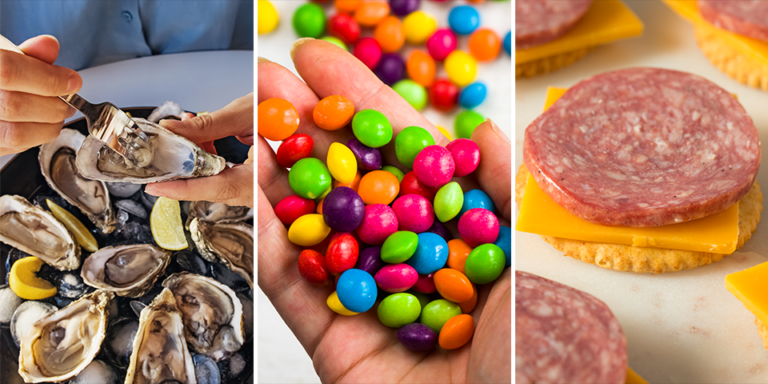10 Disturbing Food Facts You Wish You Didn’t Know
There’s plenty of food out there that folks find disgusting or off-putting, especially if it’s something alien to your culture’s cuisine. Haggis, lutefisk, and balut are just a few examples of dishes that may make your stomach turn. But beyond the obvious, there are hidden and unsettling facts about the food we consume regularly that may surprise you.
1. Lemon Slices May Be Covered in Poo Particles
Cut-up lemons in restaurants may look innocent, but a study found that almost 70% of sampled lemons were covered in bacteria and yeast, including fecal matter and E. coli. Proper sanitary measures are crucial to prevent contamination.
2. Raw Oysters Are Alive
Eating raw oysters means consuming them while they are still alive. Dead oysters can harbor harmful bacteria, so it’s essential to ensure they are fresh and alive before consumption.
3. Most Gummy Candies Are Made From Pig Skin
Gelatin, the main ingredient in gummy candies, is derived from animal parts like pig skin. Vegan alternatives are available for those who prefer to avoid animal products.
4. You Can Buy Coffee Sourced From Civet Poop
Kopi luwak, a unique coffee bean processing method involving Asian palm civet digestion, produces a distinct flavor. However, ethical concerns arise from the treatment of civets in some production methods.
5. Your Favorite Candy Is Covered in Insect Juice
The shiny coating on candies is made from confectioner’s glaze, sourced from insect secretions. While considered safe by the FDA, this fact may surprise candy lovers.
6. Vanilla Flavoring Can Come From Beaver Butts
Castoreum, derived from beaver castor glands, is used as a vanilla flavoring substitute. Despite its origin, it is considered safe for consumption.
7. Salami Is Uncooked Meat
Salami is a type of processed pork that is dry-cured rather than cooked. Proper preparation methods are essential to ensure its safety for consumption.
8. Ice Machines Can Harbor More Bacteria Than a Toilet
Ice machines in restaurants may contain harmful bacteria due to improper sanitation practices. Regular cleaning and maintenance are crucial to prevent contamination.
9. Fig Bars Contain Dead Wasps (Sort of)
Some figs require pollination by fig wasps, which eventually die inside the fruit. However, most commercially available figs do not contain wasp remnants due to alternative pollination methods.
10. Canned Mushrooms Are Allowed to Contain Maggots
The FDA permits canned mushrooms to contain a certain number of maggots per 100 grams. While unsettling, this fact highlights the importance of inspecting food before consumption.

